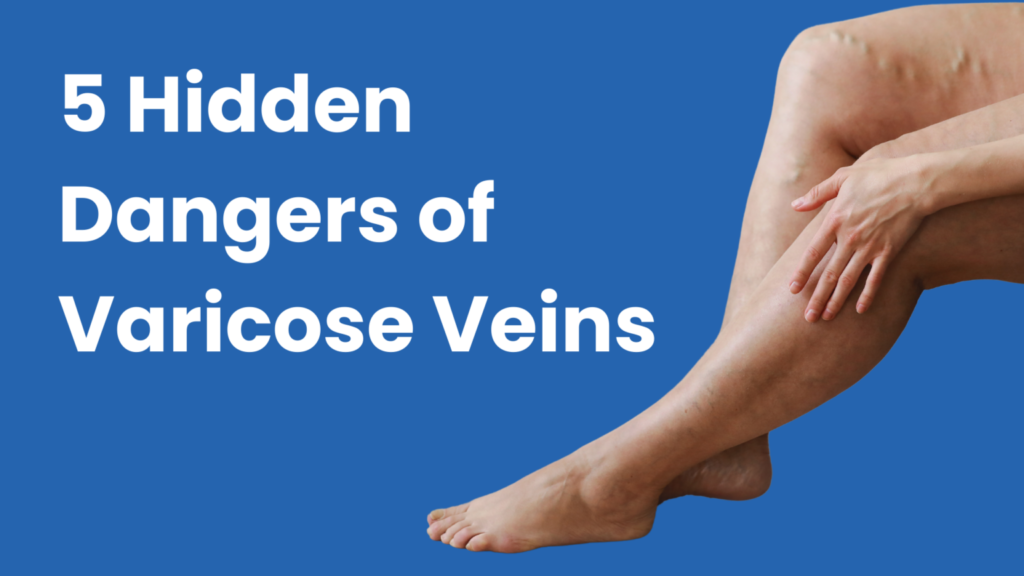Nearly half of Americans have at least one risk factor for heart disease, which encompasses vascular disease. These risk factors are high blood pressure, high cholesterol, and smoking. Whether you know you have one of them or not, undergoing a vein evaluation is one of the best ways to stay one step ahead of your cardiovascular health.
At Soffer Health Institute, Dr. Ariel Soffer and our highly qualified team of vascular experts believe that knowledge is power when it comes to your cardiovascular health. Here, we explore some of the more common vascular diseases and how, through a vein evaluation, we can take preventive steps to safeguard your health.
Table of Contents
ToggleCommon vascular diseases
A vascular disease includes any issue that involves part of the 60,000 miles of blood vessels in your body, including your veins, arteries, and capillaries. To give you an idea of the types of problems we look for during your vein evaluation, here are some of the more common vascular diseases:
Peripheral artery disease (PAD)
Your arteries carry oxygen and nutrients from your heart to the rest of your body and need clear pathways to accomplish this. With PAD, which affects 8.5 million people in the United States, your arteries harden over time thanks to plaque buildup (atherosclerosis), which hampers the flow of blood through these vessels.
Abdominal aortic aneurysm (AAA)
One of your major arteries, the abdominal aorta, passes through your abdomen, and if it develops a bulge, it weakens the artery and puts you at risk for a rupture.
Deep vein thrombosis (DVT)
This vascular problem occurs when a clot forms in a vein in your lower limbs or pelvic area. This clot can become quite dangerous if it travels to your lungs.
Carotid artery disease
Your carotid arteries deliver blood to your ,and if they become increasingly blocked by atherosclerosis, you’re at much greater risk of a stroke.
Chronic venous insufficiency (CVI)
The veins in your legs are equipped with tiny valves that close as blood pushes through, preventing it from spilling backward. With CVI, these valves weaken, which can lead to varicose veins, among other issues.
While this list of vascular diseases isn’t complete, it does give you an idea of the many issues that can crop up in your vascular health.
Evaluating your risks
As we mentioned, one-third of Americans are at risk for heart disease due to high blood pressure, high cholesterol, and/or smoking. Hypertension and high cholesterol often develop because of poor diet, carrying extra weight, and a sedentary lifestyle. These lifestyle factors are also associated with other chronic diseases that pose risks to your vascular health, such as diabetes.
When you come see us for a vein evaluation, one of our goals is to identify your risks so we can take preventive steps. We not only review your current and past health, but also any family medical history you have when it comes to cardiovascular health.
Once we get a general view of your health, we perform a visual exam to look for any outward signs of a problem with your vascular health, such as varicose veins. Based on our findings during your physical exam and what we’ve learned during your risk assessment, we can decide which tests may be appropriate.
For example, we can use ultrasound to identify blockages or clots in your blood vessels. If we find a potentially problematic vein, we can also perform a venogram (X-ray) with contrast to help us assess the function of the blood vessel, including its valves.
The bottom line is that a comprehensive vein evaluation with us can help you identify any potential problems with enough time to take evasive action. Even if we find that your blood vessels are in good health, you have peace of mind and some recommendations moving forward to preserve your vascular health.
To schedule your vein evaluation, contact one of our offices in Aventura, or Weston, Florida, to set up an appointment.



